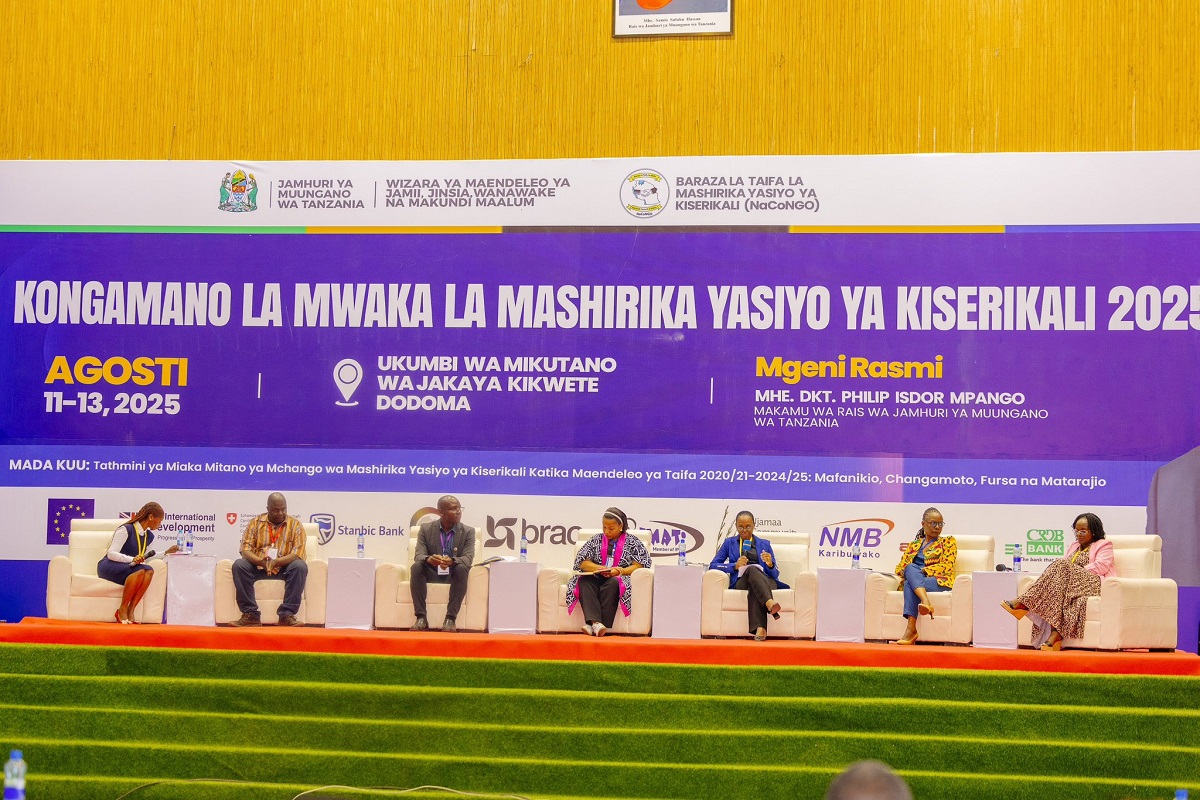Tanzania opens fund for NGOs as foreign aid takes a dip
- Government of Tanzania launches fund for NGOs.
- Tanzania NGOs urged to wean off donor dependency.
- NGOs encouraged to seek alternative fundraising solutions.
Players across Tanzania NGOs segment can breathe a sigh of relief following the government’s decision to establish a fund to support non-state actors in the country at a time when organizations are grappling with thinning donor support.
Last week, the government of Tanzania launched a National Committee tasked with coordinating the establishment of the Non-Governmental Organisations (NGOs) Basket Fund (NBF), an initiative that is wired to support entities in the segment during the current period of reduced donor funding.
The announcement was made at the annual NGOs forum held in the country’s capital Dodoma. Reading the Vice President’s speech at the ceremony, Minister for Community Development, Gender, Women and Special Groups, Dr. Dorothy Gwajima challenged the committee to carry out its duties with utmost diligence.
“We expect the committee to act with the highest level of professionalism,” he said.
Vice-President Dr. Philip Mpango also called on the committee to perform its duties as patriots and to prioritize inclusiveness. “You must make sure all required processes are completed in a time fashion and strictly for the intended purpose.”
Dr. Mpango added: “The ministry responsible for NGOs must work closely with stakeholders in implementing and reviewing the National Sustainability Strategy for NGOs whenever necessary.”
The Vice President noted that the formation of the fund is a strategy that serves as a national guide to help strengthen resilience by the 2026/27 financial year.
Speaking on behalf of the Vice President, Dr. Gwajima called on the ministry and stakeholders to look for alternative funding sources that will enable small organizations to grow and thrive. “One of the key aspects of this strategy is the establishment of a joint basket fund for NGOs, which will allow them to access funding without stringent donor conditions,” he urged.
Dr. Mpango stressed that as the country is working to improve the operating environment for organizations and is looking to enhance their contribution over the next five years.
“The government is actively exploring new opportunities, among them is the establishment of a Joint Grant Fund,” he said.
To this end, he explained that the initiative is in line with President Samia Suluhu Hassan’s 4Rs philosophy: Reconciliation, Resilience, Reforms and Rebuilding.
Vice president urged the NGOs to operate with transparency and accountability. “This is the only way that you will promote good governance and elevate the recognition of your role in national development,” he underscored.
“As we implement the necessary reforms, we must remain resilient in our efforts to achieve collective reconciliation, which is an essential step toward rebuilding our future and that of the generations to come,” the Vice President said.
The Vice-President also called on leaders, members and staff to carry out their responsibilities professionally, with integrity and with patriotism in mind. “These must be your core mandates while safeguarding the broader interests of the NGO sector and the nation as a whole,” he urged.
Also Read: Tanzania unit fuels Equity Group to $267 million half-year net profit
NGOs urged to seek alternative funding options
Seconding the Vice President, Chairperson of the National Council of NGOs (NaCoNGO), Mr. Jasper Makala, said the launch of the financial compliance and engagement manual for non-state actors will serve to help elevate the sector’s visibility and enhance recognition of its contribution to the national budget.
He seized the opportunity to reaffirm the council’s commitment to continued collaboration with the ministry responsible for NGOs through the Office of the Registrar of NGOs as well as other government institutions, in accordance with existing laws, regulations and coordination framework.
He pointed out that the Tanzanian government has directed non-government organizations to increase and enhance self-reliance options and to wean off donor-dependence especially since donors’ policy has changed globally.
The chairman said there is need for organizations to develop alternative sources of income and to come up with services and projects using resources available in their areas that will in turn help them to raise their own funds.
On his part, the Permanent Secretary of the Ministry of Community Development, Gender, Women and Special Groups, Dr. John Jingu, lauded the government for the initiative.
Speaking on the sidelines of another meeting, Dr. Jingu said NGOs and other non governmental organizations are responsible to ensure economic, intellectual, and developmental changes occur in the societies that they operate in.
“Non-Governmental Organizations are legally registered to provide services and education in different fields to the community, so you should realize that the agenda for sustainable development in the Nation includes being agents of positive change in your societies,” Dr. Jungu underlined.
He seconded the vice president saying NGOs should implement sustainable production projects and wean off dependence on donors.
“Be agents of positive change in your society and so not wait for donor funding but develop your own fundraising options,” he emphasized.
Share this content:





Post Comment